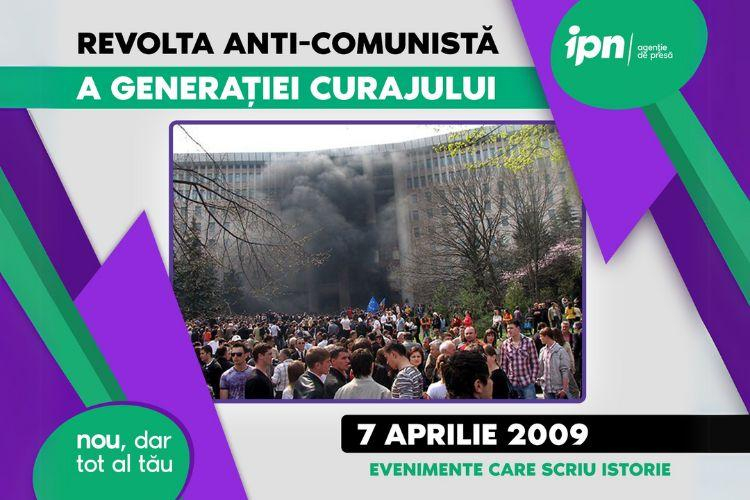
April 7 marks the 16th anniversary of the massive protest in the center of the capital, attended by thousands of people, mainly young people. They showed their disagreement with the results of the April 5, 2009 parliamentary elections, which they considered rigged. For the third time in a row, the Communist Party won a majority in parliament.
After the publication of the preliminary election results by the Central Election Commission, calls for protests were launched on social media. The initially peaceful demonstrations degenerated. Some protesters forced their way into the Parliament and Presidency buildings. Both civilians and police were injured. Only one death was officially recorded, that of Valeriu Boboc, a young man who was beaten to death in the Great National Assembly Square. Civil society spoke of at least five people who lost their lives in suspicious circumstances.
The demonstrations gained momentum when several political parties joined the protesters. On April 7, 2009, more than 30,000 opposition supporters took to the streets of Chisinau to challenge the Communists' election victory.
During the events of April 7, a significant part of the collection of documents in the Parliament's Archives was burned. Some 3000 files containing information from the period 1946-2009 were destroyed. Minutes of plenary sittings of the Parliament, collections of adopted acts, decisions of the Standing Bureau, minutes of committee meetings, provisions of the Parliament's leadership, documents on the work of parliamentary factions were lost. The original of the Declaration of Independence of the Republic of Moldova was burned.
Several attempts from different platforms to investigate the circumstances and identify the organizers of the violent actions were unsuccessful both during the communist government and after the government was taken over by democratic coalitions.
The Party of Communists, which was in government at the time, repeatedly criticized the actions, noting that Moldova had then embarked on a path of total degradation, disregard of the legal principles of functioning of the state, restriction of democratic freedoms and gradual elimination of its sovereignty". According to the PCRM, the commissions set up to investigate the events of April 7, 2009 ended their work without presenting even "the slightest" results. They "were aimed at compromising the communist government, but real facts did not confirm these mythological versions".
According to prosecutor's office data, after the events of April 2009, 77 complaints were filed by people who said they had suffered as a result of police actions. In a further 31 cases prosecutors took action, and in total 108 criminal proceedings were opened. In 71 cases criminal cases were opened, and the most - 42 - were for torture. Another 19 cases were opened for exceeding authority or exceeding official duties, and ten - for other categories of offenses.
Later on, representatives of several civil society organizations issued a position note stating that the "April 7, 2009" case is failed. All persons in positions of responsibility have been acquitted or dismissed. Over 600 people were ill-treated, detained and severely beaten in April 2009. They were denied independent and fair justice. They were detained in inhuman conditions without food and water. At least five people lost their lives in suspicious conditions, although the state claimed responsibility for only one death.
The European Court of Human Rights has condemned Moldova in eight cases related to the April 7, 2009 case, and more than 40 other applications remain pending.
___
The material is part of IPN's "History – making Events" campaign.
The IPN News Agency is an exemplary, free and independent media organization with a history of over 20 years. IPN is a media institution of public utility and a journalistic expression of the effort to strengthen democracy and modernization of the Republic of Moldova.
Every year, IPN produces over 9000 news and journalistic materials in Romanian, Russian and English, organizes over 500 debates, broadcasts and press conferences, provides exclusive photos from over 500 public events and has the largest network of subscribers - state and local government institutions, embassies and international organizations, national and international media institutions, NGOs, etc.
IPN Agency manages the online platform ipn.md and is present on Facebook, Instagram, Telegram, X, TikTok, Youtube.
Come to IPN - where information is treated responsibly and everyone is free to speak.
Contact:
Phone.: 068888261
E-mail: marketing@ipn.md











